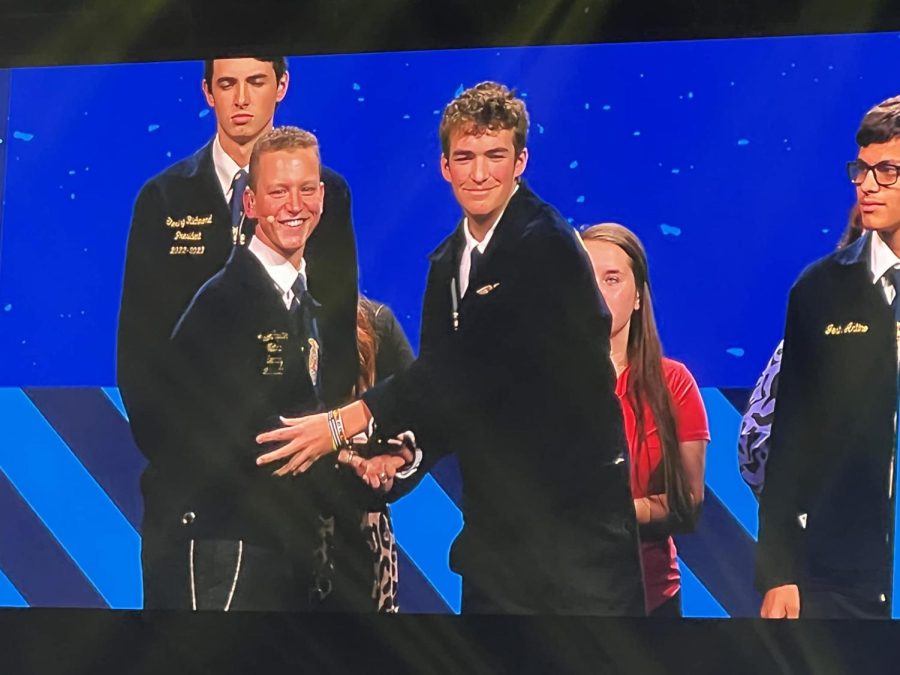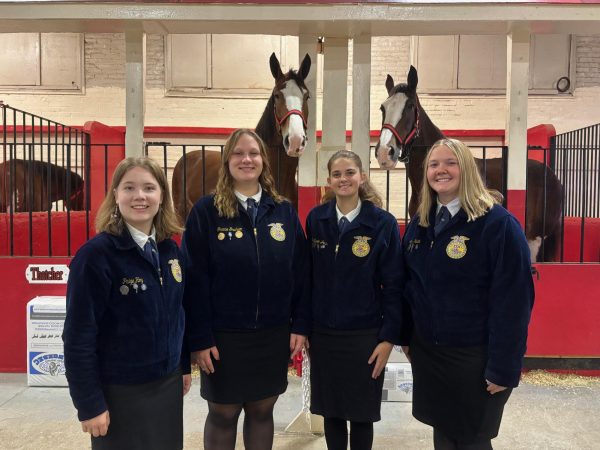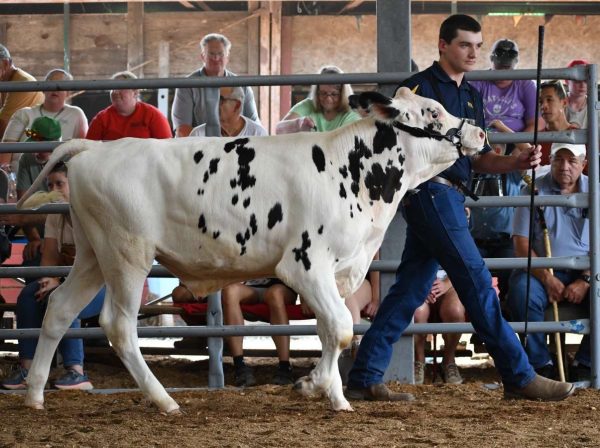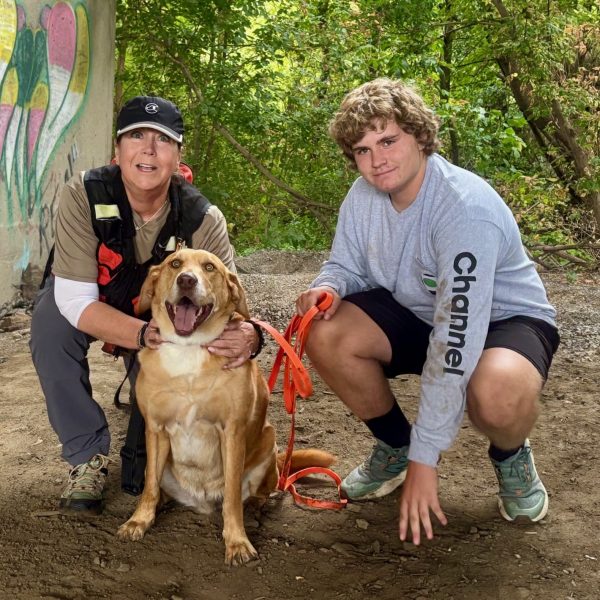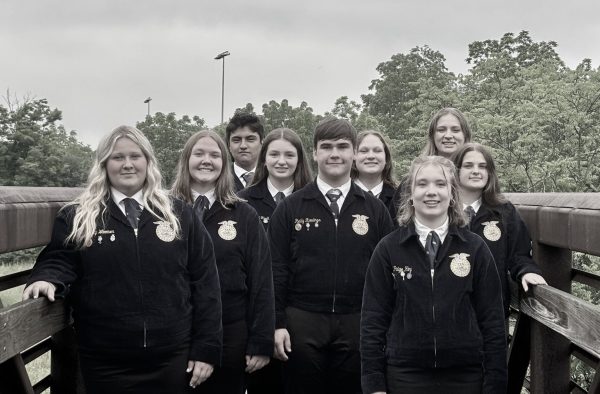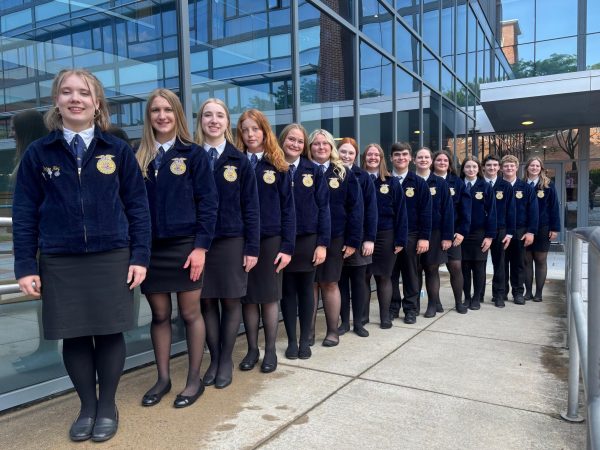Two Tyrone FFA Members Place in Top 10 at National FFA Convention
Tyrone sophomore Dylan Ewing accepts his award at the national FFA Convention in Indianapolis, IN
Sophomore Dylan Ewing’s FFA AgriScience Fair Project was recognized as 7th in the nation for in Power, Structural, and Technical Systems for 9th and 10th graders and Emma Bartel was 10th in the AgriScience Fair Food Products and Processing Systems Grades 11th and 12th graders at the 95th National FFA Convention in Indianapolis, IN.
This year’s national competition drew in 739 entries from throughout the country. For the first time ever, the top 10 students in each division were brought onto the stage during various sessions of the National FFA Convention for recognition as compared to the top three in past years. Some students were also invited to participate in the Student Showcase to present a “TED-like talk” about their research.
Ewing’s project started in August of 2021 where he wanted to focus on two and four-stroke small engine emissions, to determine if there was a difference between them. The trials were conducted and observed to determine if there is any difference in two and four-stroke engine emission rates, including whether or not the age of the engines has any effect. This study was important because small gas engines are an aspect of daily life.
People should also be conscious of what using these engines is doing to the environment and if there is any alternative to these engines. His research showed the two-stroke engines emit more hydrocarbons, and used four-stroke engines seem to have higher AFR, which may affect NOX and CO2 emissions.
Bartel’s project began in September of 2021 as a senior at Tyrone Area High School. She questioned, “Which method is the most effective for preserving strawberries?” In her study, she wanted to determine which method of preserving strawberries is the best because of their fresh produce is not being eaten in the first week causing the food to go to waste.
Because of witnessing the effects of poor preservation of food first-hand, Bartel began to research this topic. Bartel’s hypothesis, “If I use five methods for preserving strawberries such as original container, unrinsed, rinsed, vinegar bath and mason jars and I measure the number of good strawberries versus bad in each method over time, then the mason jars will last the longest because it’s more sealed so less oxygen and moisture will be able to get into it” was accepted. This technique lasted 20 days, which is extremely good. The rinsed method followed closely behind in making the strawberries last. The unrinsed was proven to be effective also because it lasted around 18 days. While the vinegar bath did last 10 days, it was very close to how long the original container lasted 8 days in total, so it ranked good but not as effective.
The Agriscience Fair has been going strong for 24 years, says Madeline Young, program specialist in the programs and events division of the National FFA organization.
“It’s all about exploring your interests,” Young says. “Agriscience research is one type of supervised agricultural experience (SAE). Agriscience Fair is a great extension to a student’s SAE program. Research SAEs are a great way for students to get involved with FFA, who do not have the interest in or resources for production or placement-type SAEs.”



